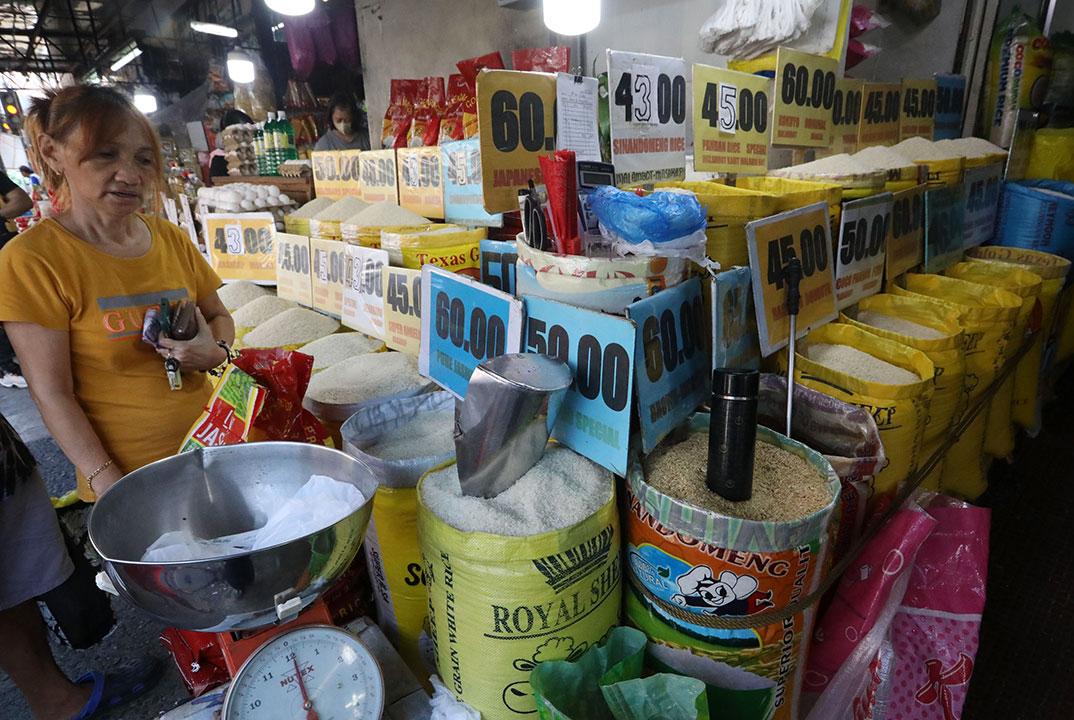
THE RETAIL PRICE of rice is expected to drop by September by as much as 20% due to the impact of improved domestic production and the relaxation of import procedures and tariffs, the Department of Finance said.
“We expect rice prices to go down by 20%, maybe by September. This would entail one, increasing production, and second, reducing tariffs,” Finance Secretary Ralph G. Recto said during the Philippine Economic Briefing on Monday.
The average retail price of well milled rice was P56.52 per kilogram as of early May, according to the Philippine Statistics Authority. A kilo of regular milled rice averaged P51.24 during the period.
“I think we have a game plan as far as that is concerned,” Mr. Recto added.
National Economic and Development Authority (NEDA) Secretary Arsenio M. Balisacan said that the domestic price of rice has been a challenge for the past few months.
“The forecast on global rice prices by the second half of the year, particularly by September, is going down… It’s past El Niño and the election in India is over,” he added.
Mr. Balisacan said that by September, all restrictions on exports by major producing countries will have been lifted.
“Domestic prices simply reflect the trends in global prices, particularly for rice. So, as global prices come down, provided our exchange rate does not sharply depreciate, which I don’t expect, then we should see domestic prices coming down,” he added.
Separately, Agriculture Undersecretary Asis G. Perez said the decline in rice prices will require not just an increase in rice production, but also imports.
“That’s a common aspiration. That’s been discussed, and 20% is around P10 less in price. (We are) looking at whether we can increase our production,” Mr. Perez said on the sidelines of the briefing.
He added that rice prices could still be influenced by external factors like global price surges.
The Department of Agriculture (DA) downgraded its palay (unmilled rice) target to 20.4 million metric tons (MT) this year, citing the impact of El Niño on domestic production.
Its initial target had been 20.8 million MT. It had hoped to exceed the 20.06 million MT recorded in 2023.
The reduced tariffs on rice imports were extended until December. Rates for rice imports were kept at 35%, regardless of the minimum access volume and country of origin.
Rice imports have totaled 1.89 million MT as of May 9, according to the Bureau of Plant Industry. — Adrian H. Halili



